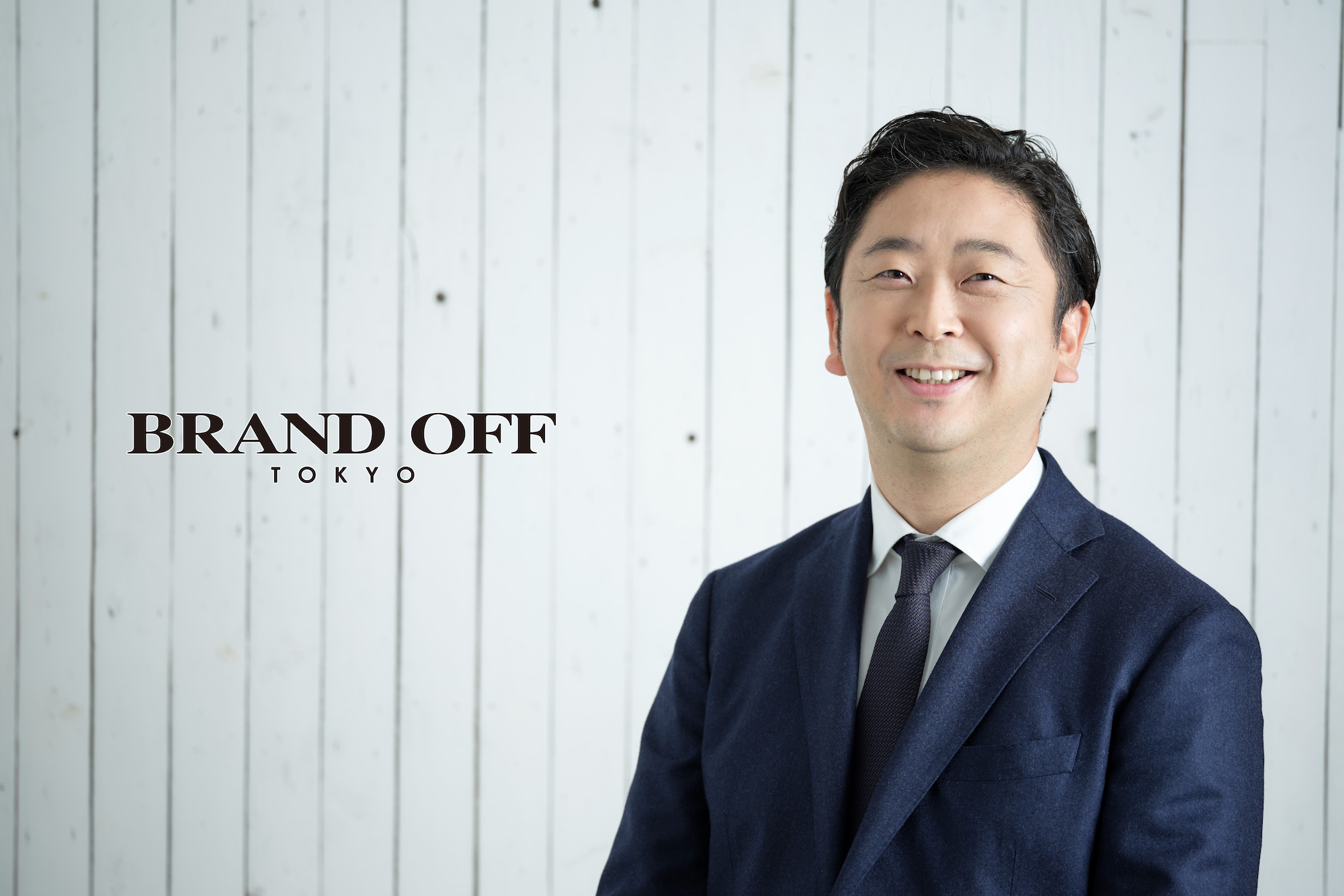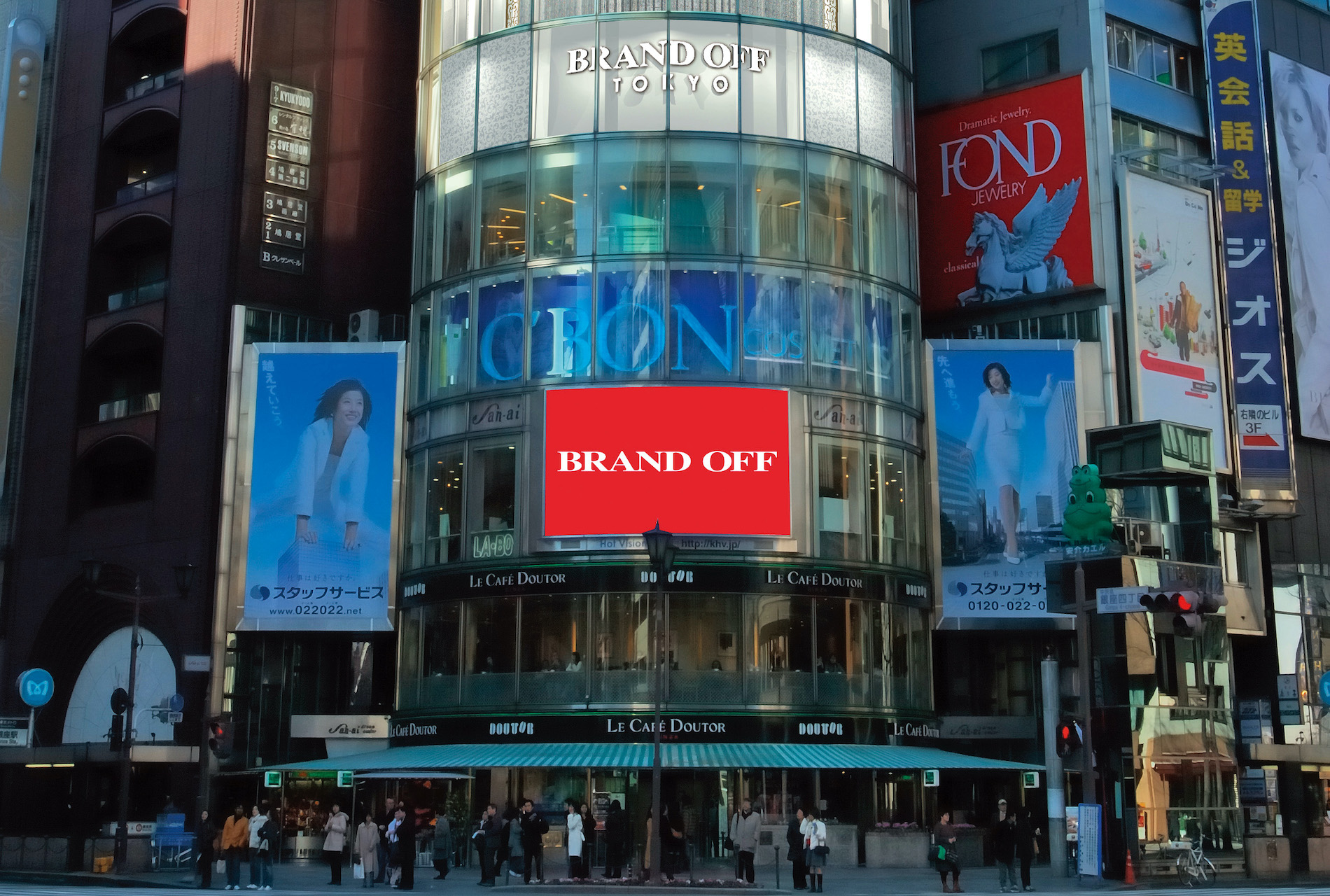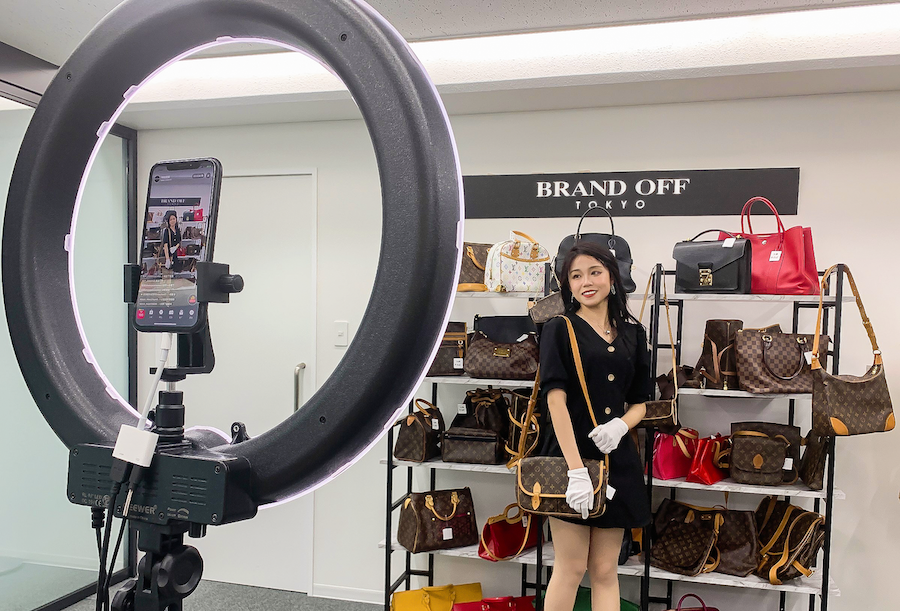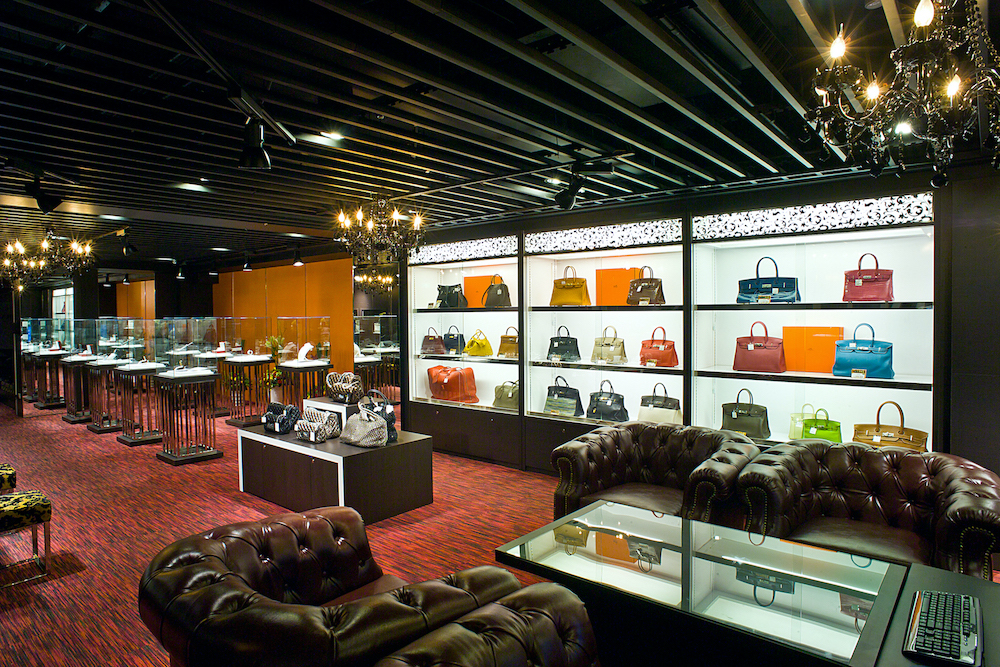
Yuya Yamauchi, chief executive of luxury reseller Brand Off, talks about their expansion in China, home to the biggest pool of untapped, resale-ready luxury items in the world.
China’s luxury resale market has picked up steam in the wake of the coronavirus pandemic, attracting global players and a new breed of secondhand fashion startups.
Luxury resale chain Brand Off, owned by Japan’s largest pre-owned reseller Komehyo, is among a growing list of companies that recently joined Tmall Global, Alibaba Group’s cross-border online marketplace.
Brand Off stores, known for their range of secondhand designer goods and vintage rarities, including Hermès Birkin bags, has long been a go-to destination for Chinese shoppers in Japan. During peak seasons, tourists worldwide can contribute up to half of the company’s monthly revenues.
Now, Brand Off is expanding in China. We sat down with Brand Off’s Chairman and CEO Yuya Yamauchi last month to hear how the Covid-19 pandemic sped up the company’s expansion in China, the growth of the secondhand luxury market and their newly inked partnership with Tmall Global.
This interview was translated from Japanese to English and edited for brevity and clarity
Brand Off stores, especially your boutique in Tokyo’s Ginza district, are hot destinations for Chinese consumers when traveling in Japan. How did Covid-19 impact your business? Is demand still strong for secondhand luxury goods?
Our physical stores have taken a major hit because of the drop in foreign travelers visiting Japan. The pandemic also moved some plans higher up our priority list, including accelerating digitization. But on the other hand, it’s pushed us to try so many new things in a short amount of time. I think that’s a very positive thing.
Despite the pandemic, consumer demand for luxury has remained strong and will likely continue on an upward trajectory. This is the case not just for pre-owned fashion but also for designer and streetwear brands. The industry is placing more importance on digital and communicating with younger audiences online. This is especially front-and-center of brands’ China strategies, where you can’t afford to ignore digital channels.

Consumers have grown increasingly comfortable with shopping online but do you think this trend will last after the pandemic subsides?
Once people can travel around the world again, offline spending might rebound due to pent-up demand. That means digital sales would drop, but we still expect online to grow and continue to be extremely important in the long-term.
E-commerce isn’t new for Brand Off. You started to experiment with digital platforms and technologies about a decade ago. Can you tell us more about the evolution of your digital strategy?
When we first started 10 years ago, most retailers looked at digital as just another selling channel. It wasn’t a key battlefield, unlike it is today. In China, that mindset has flipped on its head: companies are starting online before going offline, such as Alibaba expanding from e-commerce to running the supermarket Freshippo. Nowadays, we see digital as a truly critical part of our strategy. We’re also investing in artificial intelligence technologies that can tell authentic products from replicas. It has achieved an accuracy rate of 99.9% in our internal tests and we’ve put that to use in some of our Japan stores. We’d like to roll it out more broadly in the future.
Brand Off also made use of livestreaming to sell to Chinese consumers during 6.18.
We started experimenting with livestreaming this year, including on Taobao Live, Alibaba’s livestreaming platform. All of the livestreaming hosts were our own sales associates, who have extensive knowledge about luxury products and know what vintage shoppers are looking for. We received great feedback and this format differentiated us from other brands, which typically tap external influencers to host their livestreams. In the future, we also want to leverage livestreaming to take consumers on virtual shopping tours to our stores in Japan, as they still aren’t able to travel here in person.

How important is the China market for Brand Off?
The country’s pool of untapped, resale-ready luxury items is the biggest in the world, so there is enormous growth potential. In an internal study we conducted 2 to 3 years ago, we found that less than 5% of the newly released luxury products in China entered the secondhand market, compared to 10% in Japan, which has become one of the world’s most sophisticated markets for secondhand shopping. But it’s growing faster than Japan’s resale market, and Chinese consumers have been bringing home so many designer goods from their travels that are now sitting idle in their closets. We also see many Japanese firms selling pre-owned luxury products to China, but few are sourced from China to sell to Japanese consumers. China is like a goldmine. It’s also still without a single dominant player in the market, which means there is an opportunity to gain a foothold if we step in earlier.
Brand Off joined Tmall Global in June, just ahead of the 6.18 Mid-Year Shopping Festival. Why did you decide to launch then?
6.18 is usually a peak time for shopping in China. That means greater visibility for our store. Shopping festivals are important for us not just because we want to offer discounts or clear out excess stock. They are opportunities to communicate with Chinese consumers to develop a stronger understanding of pre-owned designer goods. We want to bring Chinese consumers some of our most exceptional items that no one else has. At first, they might find our products expensive, but they will gradually see their worth as they become savvier about the secondhand luxury market. Each one of these products is unique: once sold, it’s gone. It’s passed from one person to another.
Why did you choose Tmall Global as your first e-commerce partner in China?
Alibaba is a major e-commerce player with the largest customer base in China, so it’s naturally our partner of choice when starting out in the market. We expect demand for secondhand luxury will rise, especially among China’s younger generation, some of the world’s most advanced users of new digital modes of shopping, such as livestreaming.
Alibaba’s New Retail concept – the seamless integration of online and offline to create a better customer experience – also left a strong impression on me when visiting Alibaba’s headquarters before the pandemic. Eventually, we want to integrate our retail network with our online channels, so stores will no longer be just siloed, bricks-and-mortar stores but omnichannel stores. Tmall will play an important role in this going forward.

There used to be a stigma against buying secondhand in China. Do you see attitudes changing among the younger generation?
It was the same for Japan. Japanese consumers used to have strong biases against pre-owned goods – some looked at us as a kind of pawnshop selling used items when we first launched the business – it took years for that perception to change. Over the course of 73 years, our parent company Komehyo built and refined standardized processes for trading and product selection, listed on the Tokyo Stock Exchange, and became the number one pre-owned luxury reseller in Japan. As our company’s recognition grew and matured, so have consumers’ sophisticated understanding of secondhand goods.
When we look at China’s pre-owned market today, it’s very much like the early stages in Japan. There is a lack of standardization and governance but full of opportunities for us to use our experience and digital technology from Japan to speed up education about vintage goods and the market’s overall growth. The more Chinese consumers learn about, and experience, our products, the more satisfaction and trust we can build in the market. We are optimistic that China’s secondhand market will grow – at a much faster speed than it took for Japan.
What’s next for Brand Off?
We want to expand our range of customer services on Tmall Global, including maintenance support and membership privileges. Also, though our focus is online right now, we don’t just see ourselves as a seller but as a service. Our digital rollout is important, but when we get the chance to visit China after the pandemic, I hope we can communicate with our customers face-to-face and get their feedback in person. This is something I really want to do, as soon as the pandemic ends. I’m hoping soon.
Sign up for our newsletter to receive the latest Alibaba updates in your inbox every week.




